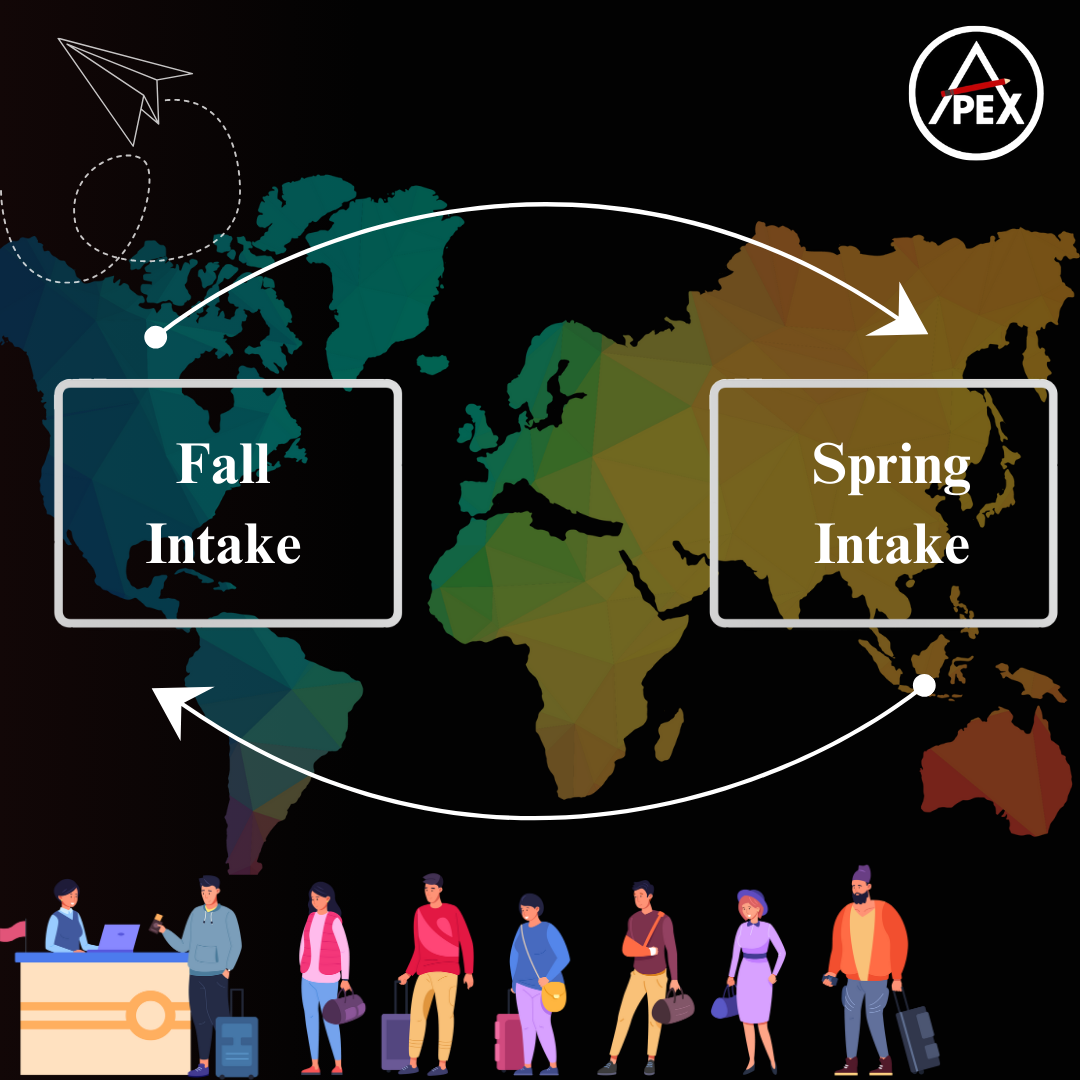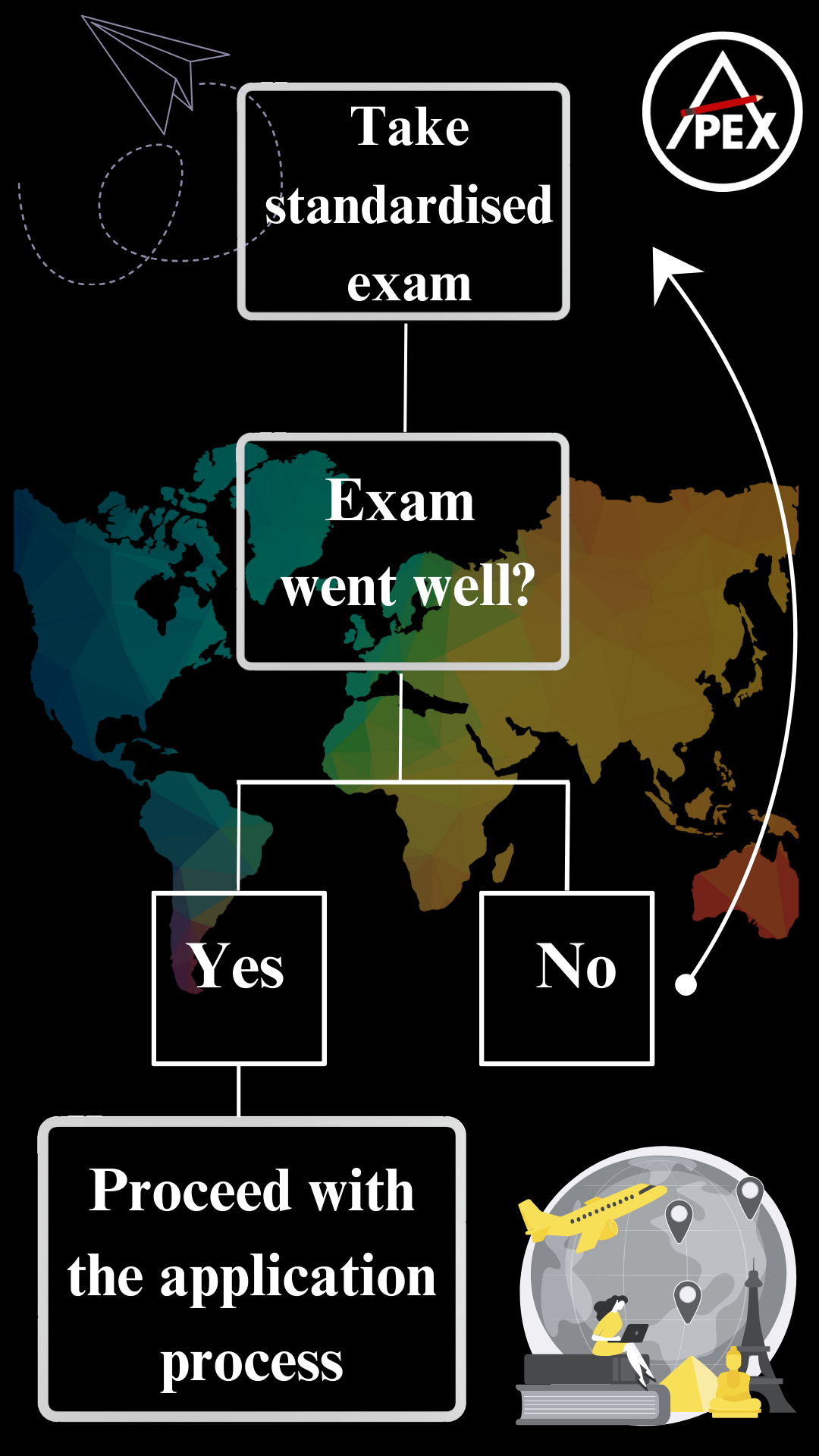Engineering Journey to International Study
You've earned your engineering degree, and now you're dreaming of expanding your horizons with international higher education. This guide will break down the process, tailored for both recent graduates and experienced professionals, to help you turn your vision into a reality.
Remember: This information might seem overwhelming at first, but don't worry! We'll walk you through every step, offering guidance and support along the way.
Step 1: Define Your Study Abroad Vision
You've decided to pursue an advanced degree in engineering – congratulations! But with so many options, where do you even begin? We will help you navigate the decision-making process by breaking down key questions and providing insightful guidance. The earlier you start planning, the more time you have to create a well-structured strategy. Aim to begin at least 12 months before your desired intake cycle.
i. Program Type: Master's, PhD, or Certificate?
- Master's Degree: A Master's degree offers a deeper dive into your chosen field, enhancing your skills and knowledge for specific roles. This is ideal if you want to specialize in a particular area, advance your career within your existing industry, or transition to a new one.
- PhD Program: A PhD program is research-focused, allowing you to contribute original knowledge to your field. This is a suitable path if you aspire to become a researcher, faculty member, or lead cutting-edge innovation.
- Specialized Certificate: These shorter programs provide targeted skills training in specific areas like data analysis, project management, or renewable energy. They're excellent for career advancement, professional development, or bridging knowledge gaps.
ii. Field of Study: Traditional or Interdisciplinary?
- Traditional Engineering Disciplines: Civil, mechanical, electrical, chemical, and computer engineering are well-established areas with strong career pathways.
- Interdisciplinary Fields: Environmental, biomedical, aerospace, and robotics engineering combine multiple disciplines to tackle complex challenges.
iii. Country & University: Your Global Engineering Hub
- Research: Explore renowned universities globally, known for their cutting-edge research in your field. Consider faculty expertise, available research labs, and potential collaborations.
- Career Goals: Align your choice with your future ambitions. If you aspire to work internationally, select universities with strong industry connections and global reach.
- Culture & Lifestyle: Think about the living environment, cultural fit, and cost of living in different countries.
iv. Intake Cycle: Fall or Spring?
- Fall Intake: Most universities offer applications for the fall semester (September). This allows you to start the program during the traditional academic year.
- Spring Intake: Some universities offer spring intakes (January/February), providing flexibility for students with unique circumstances.

Step 2: Standardized Tests - The Foundation of Your Application
Standardized tests are crucial for showcasing your academic abilities to international universities.
For Engineering Students:
- Common Tests:
- GRE: (Graduate Record Examinations) - Typically required for Masters and PhD programs in STEM fields.
- TOEFL/IELTS: (Test of English as a Foreign Language/International English Language Testing System) - To assess your English language proficiency if English isn't your native language.
- Timeline:
- Start Early: Begin preparing for the GRE and English language tests during your 3rd year of undergraduate studies. This gives you ample time to practice and improve your scores.
- Test Dates: Aim to take your tests by June for Fall intake and December for Spring intake.
- Action:
- Research Requirements: Carefully research the specific test requirements for each program and university you are interested in.
- Test Preparation: Allocate 3-6 months for thorough preparation. Consider taking a prep course, utilizing online resources, or working with a tutor.
- Multiple Attempts: Be prepared to take the tests multiple times if needed.

For Experienced Professionals:
- Common Tests:
- GRE: (Graduate Record Examinations) - Typically required for Masters and PhD programs in STEM fields.
- GMAT: (Graduate Management Admission Test) - May be required for MBA programs or specialized business-oriented engineering programs.
- TOEFL/IELTS: (Test of English as a Foreign Language/International English Language Testing System) - To assess your English language proficiency if English isn't your native language.
- Timeline:
- Plan Ahead: Begin planning for your test preparation 18 to 24 months before your desired study abroad start date.
- Utilize Free Time: Take advantage of weekends, holidays, and vacation time to prepare for the tests.
- Test Dates: Aim to complete your standardized tests by June for Fall intake and December for Spring intake.
- Action:
- Research Requirements: Carefully research the specific test requirements for each program and university you are interested in.
- Test Preparation: Allocate 3-6 months for thorough preparation. Consider taking a prep course, utilizing online resources, or working with a tutor.
- Multiple Attempts: Be prepared to take the tests multiple times if needed.
Step 3: Crafting Your Applications - Showcasing Your Potential
Once you have your test scores, it's time to build your applications.
For Engineering Students:
- Timeline:
- Start Early: Begin gathering documents and drafting your essays during your final semester of undergraduate studies.
- Deadlines: Most universities have Phase 1 application deadlines between September and December, with Phase 2 deadlines later in the year.
- Action:
- Application Strategies: Early applications (before Phase 1 deadlines) give you a competitive edge as you are assessed within a smaller applicant pool.
- Document Checklist: Gather all required documents, including:
- Transcripts: Obtain official transcripts from your undergraduate university.
- Letters of Recommendation: Request strong letters of recommendation from professors who can highlight your academic achievements, research experience, and potential.
- Statement of Purpose (SOP): Craft a compelling SOP that outlines your motivations for studying abroad, your career goals, and how your chosen program aligns with your aspirations.
- Essays: Prepare compelling essays that answer specific questions posed by the universities you are applying to.
- Research University Requirements: Carefully review the specific application requirements for each university. Some universities may have unique forms or essays that need to be completed.
For Experienced Professionals:
- Timeline:
- Plan Ahead: Begin gathering documents and drafting your essays 1 year before your desired study abroad start date.
- Deadlines: Most universities have Phase 1 application deadlines between September and December, with Phase 2 deadlines later in the year.
- Action:
- Application Strategies: Early applications (before Phase 1 deadlines) give you a competitive edge as you are assessed within a smaller applicant pool.
- Document Checklist: Gather all required documents, including:
- Transcripts: Obtain official transcripts from your undergraduate university.
- Letters of Recommendation: Request strong letters of recommendation from supervisors, managers, or mentors who can highlight your work experience, skills, and career achievements.
- Statement of Purpose (SOP): Craft a compelling SOP that outlines your motivations for returning to academia, your career goals, and how your chosen program aligns with your aspirations.
- Resume: Prepare a comprehensive resume showcasing your professional experience, skills, and achievements.
- Essays: Prepare compelling essays that answer specific questions posed by the universities you are applying to.
- Research University Requirements: Carefully review the specific application requirements for each university. Some universities may have unique forms or essays that need to be completed.
Step 4: University Acceptance & Visa Application - The Journey Begins
After you submit your applications, it's time to wait!
- Timeline: Universities typically have rolling admission decisions or a specific decision date. Once accepted, you will receive an I-20 form.
- Action:
- Stay Organized: Keep track of deadlines, application status updates, and university communications.
- Visa Application: After receiving your I-20 form, you can apply for your student visa. Gather all required documents and prepare for your visa interview.
Step 5: Prepare for Your Study Abroad Experience - Embracing a New Chapter
Once your visa is approved, you are ready to embark on your exciting academic journey!
- Timeline: Start planning for your move abroad, including:
- Housing: Research and secure housing near your university.
- Finances: Plan your budget, including tuition fees, living expenses, and travel costs.
- Packing: Pack efficiently, leaving room for items you may need to purchase once you arrive.
- Culture & Language: Learn about the culture and language of your host country to ensure a smooth transition.
Key Takeaways:
- Start Early: The earlier you begin planning, the more time you have to create a well-structured strategy.
- Be Organized: Keep track of deadlines, gather documents, and stay organized throughout the process.
- Research Thoroughly: Familiarize yourself with the requirements of each program and university, and research the specific requirements for international students.
- Seek Guidance: Reach out to your university's study abroad office, or consult with a professional advisor for personalized support.
We're Here to Help:
Remember, we're here to guide you through every step of the way. Don't hesitate to reach out with any questions or concerns. We're excited to help you achieve your dream of studying abroad after your engineering degree!
Studying abroad after your engineering degree can be a truly enriching experience. By following these steps and timelines, you can make your dream of international study a reality!
.png)
